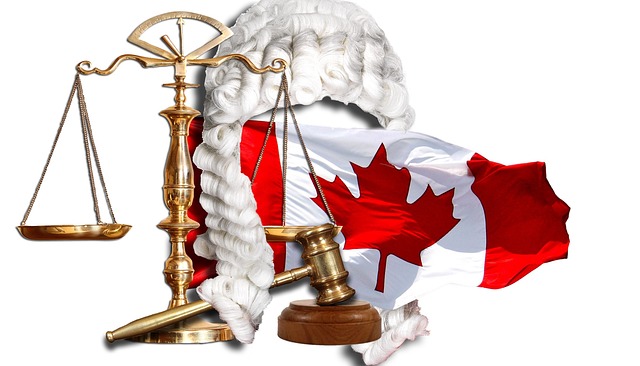Real estate fraud cases, involving mortgage scams, kickbacks, and fund misappropriation, demand intricate legal analysis and collaboration. The robust regulatory framework aims to protect communities, ensuring transparency via meticulous contract review, financial scrutiny, and evidence collection. Preventive measures include thorough due diligence, clear contracts, and staff training for ethical conduct to avoid disputes. Mediation serves as a cost-effective alternative to litigation in resolving disagreements, fostering collaborative solutions without lengthy legal battles.
In the dynamic realm of real estate, understanding and mitigating regulatory fraud is paramount. This article explores integral aspects of navigating complex legal landscapes, focusing on strategies to prevent, detect, and resolve disputes stemming from fraudulent activities. From deciphering the intricate web of regulations to employing effective compliance measures, we delve into proven methods for safeguarding transactions. Learn how to identify red flags, enforce penalties, and leverage mediation as a powerful tool in resolving real estate disputes efficiently.
- Understanding Real Estate Fraud Cases
- Legal Framework for Regulatory Fraud
- Strategies to Prevent Disputes
- Enforcing Compliance and Penalties
- Resolving Disputes Through Mediation
Understanding Real Estate Fraud Cases

Real estate fraud cases are a significant concern within the realm of regulatory law, often involving complex transactions and sophisticated schemes. These fraudulent activities can range from falsifying property documents to manipulate pricing, to undisclosed conflicts of interest by real estate professionals. Understanding these cases requires delving into intricate financial networks and relationships, as well as examining legal frameworks that govern the industry. By comprehending the various forms of real estate fraud, such as mortgage fraud, kickbacks, and misappropriation of funds, practitioners can develop effective strategies to mitigate risks and ensure compliance.
When addressing these disputes, How to Resolve Real Estate Disputes involves a meticulous process. Legal professionals must carefully analyze contracts, review financial records, and gather evidence to uncover the truth behind alleged transgressions. In many instances, collaboration with regulatory bodies and law enforcement agencies is crucial for investigating white-collar and economic crimes. The goal is often to secure a complete dismissal of all charges against innocent parties while holding culpable individuals accountable. This involves not just legal acumen but also an understanding of the social and economic impacts these frauds have on philanthropic and political communities.
Legal Framework for Regulatory Fraud

The legal framework for addressing regulatory fraud, particularly in real estate transactions, is a robust system designed to uphold integrity within the industry. This involves a comprehensive set of laws and regulations that aim to prevent, investigate, and penalize fraudulent activities. When disputes arise, these rules provide a structured approach to resolving them, ensuring fairness and accountability. Understanding this legal landscape is crucial for both individuals and businesses looking to navigate real estate deals successfully and avoid potential pitfalls.
In the event of a dispute, how to resolve real estate disputes effectively is a key consideration. The process typically involves all stages of the investigative and enforcement process, from initial allegations to evidence gathering and adjudication. Legal professionals play a pivotal role in guiding clients through these complex matters, ensuring their rights are protected. Whether it’s misleading information, false representations, or malicious intent, the legal framework equips authorities with the tools to address such cases, fostering trust within the philanthropic and political communities by maintaining transparency and accountability throughout.
Strategies to Prevent Disputes

Preventing disputes is a proactive approach to ensure fairness and transparency in real estate transactions. One effective strategy is implementing robust due diligence processes during initial negotiations. This includes thorough documentation, careful review of property records, and open communication between all parties involved. By verifying ownership, identifying any existing liens or encumbrances, and addressing potential red flags early on, stakeholders can mitigate risks significantly.
Additionally, establishing clear and comprehensive contracts is vital. Well-drafted agreements outline expectations, rights, and obligations, reducing ambiguity that could lead to disputes. Regular updates and revisions, especially in dynamic markets, ensure the contract remains relevant and effective. For both corporate and individual clients facing real estate transactions, employing these strategies can serve as a robust defense against potential white-collar and economic crimes, offering a solid foundation for dispute resolution.
Enforcing Compliance and Penalties

Ensuring compliance with regulatory fraud laws is paramount for any respective business operating within the real estate sector. Non-compliance can lead to severe penalties, including substantial fines and legal repercussions. These regulations are in place to protect consumers from deceptive practices and unscrupulous agents. To resolve real estate disputes effectively, businesses must implement robust internal controls and policies to prevent fraudulent activities. This involves regular training for staff on ethical conduct, thorough background checks of employees, and meticulous record-keeping.
When violations do occur, a winning challenging defense verdict can be achieved through proactive legal strategies. For his clients facing regulatory fraud charges, experienced legal counsel can navigate the complexities of these laws, presenting compelling arguments to mitigate penalties. By understanding both the letter and spirit of the regulations, attorneys can craft defenses that focus on legitimate business practices while ensuring strict adherence to ethical standards in real estate transactions.
Resolving Disputes Through Mediation

When it comes to resolving disputes in real estate transactions, mediation stands as a powerful alternative to lengthy legal battles. This collaborative approach involves a neutral third party, known as a mediator, who facilitates communication between disputing parties. The mediator’s role is to help participants reach an agreement mutually acceptable to all sides, without the need for costly litigation. By employing this method, real estate professionals can navigate complex issues, such as contract disputes, property boundaries, or even non-disclosure agreements, in a more efficient and cost-effective manner.
In the realm of white collar defense, understanding how to resolve disputes through mediation is an unprecedented track record strategy. It allows for a more streamlined process, enabling businesses and individuals to protect their reputations and focus on moving forward. This technique proves especially valuable throughout all stages of the investigative and enforcement process, ensuring that stakeholders can address concerns without facing lengthy legal procedures.
Regulatory fraud laws play a pivotal role in protecting buyers and sellers in the real estate market. By understanding common fraud cases, adhering to legal frameworks, and implementing effective prevention strategies, stakeholders can significantly reduce disputes. When conflicts do arise, alternative dispute resolution methods like mediation offer cost-effective and mutually agreeable solutions. Armed with knowledge and proactive measures, the real estate industry can foster trust and ensure transactions are secure for all parties involved in navigating today’s complex landscape. Knowing how to resolve real estate disputes is essential for maintaining a robust and ethical market, especially as it relates to how to resolve real estate disputes.






